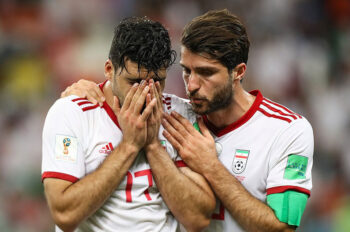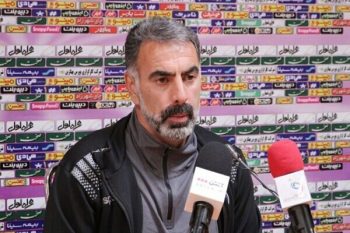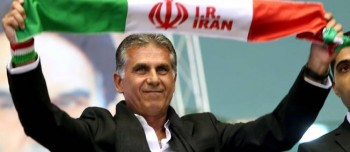Why you can’t watch Iran’s games on TV anymore

 PFDC – SINGAPORE, Watching Team Melli’s World Cup qualifiers has not always been a joy for Iranian football fans in the past, but at least the matches could be followed on television.
PFDC – SINGAPORE, Watching Team Melli’s World Cup qualifiers has not always been a joy for Iranian football fans in the past, but at least the matches could be followed on television.
Iranian national TV IRIB has not only broadcasted all of the games inside the country, but also has not forgotten about their approximately five million countrymates abroad, providing coverage to them via their satelilte channels for free as well.
But times have drastically changed.
Not only have Iranians in Europe been robbed the opportunity to watch IRIB on Eutelsat from today on – read more in “EU blacks out Iranian TV in Europe” – but already the three previous World Cup qualifiers have not been shown on Iranian television, neither out- nor inside the country.
However, the problem is not solely limited to Iran; many games of the final stage of Asian World Cup qualifiers have either not been broadcasted at all in some the countries involved or were sold in the final moment.
The recent game between Lebanon and Iran was not broadcasted in any of the two countries whereas similar cases had occured in Uzbekistan, South Korea and Australia for instance.
World Sports Group, AFC and Bin Hammam
But where is the problem? It starts with the Asian Football Confederation (AFC) and their decision to distribute the whole package of Asian football matches via one company, Singapore based World Sports Group (WSG).
Such a central distribution is nothing uncommon and is widely adpoted, most recently by the European footballing governing body UEFA.
However, World Sports Group suddenly enganged in very aggressive pricing strategies. IRIB explained their decision not to buy and air the recent games with a 40 million USD demand from WSG for the World Cup qualifying package.
As a comparison, four years ago the same package was priced 4 million USD, a tenth of the current price tag, according to IRIB.
The figures announced by IRIB have meanwhile rejected by WSG, but it remains out of doubt prices have gone up strongly.
Considering the economic situation in Iran and the absence of any private TV channels, Iranian football fans were simply locked out of the matches.
Events took an interesting turn in September, when a court in Singapore ordered veteran journalist James M. Dorsey to reveal his sources for a controversial article.
Dorsey brought up several allegations against former AFC President Mohammed Bin Hammam, also in regards to the 1 billion USD deal with WSG, which according to the article was never tendered, has to be considered undervalued and was preceeded by payments from a WSG shareholder to Mr. Bin Hammam.
WSG denied the accusations and demanded Mr. Dorsey to reveal his sources, an effort later confirmed by the court but strongly opposed by fellow journalists who see this as a campaign against press freedome and to silence Mr. Dorsey.
Also Eurosport backs out
Regardless of these allegations, with Iranian TV out of the race to broadcast Team Melli’s matches at least the foreign based fans hoped for broadcasts in international sports channels.
At least in Europe, more disappointments were waiting. There, Eurosport had obtained the broadcasting rights but had ignored all matches from Iran’s group A in the previous three rounds.
Finally, Eurosport announced to broadcast the top game of matchday 4 Iran vs. Korea Republic – but only to back out barely a week ahead of the match and to opt for Iraq vs. Australia instead.
Asked why instead of exclusively broadcasting the top match of round Eurosport would suddenly broadcast another game which can be viewed on several Middle Eastern channels available in Europe via satellite anyways, Eurosport delivered a slightly doubtful explanation, to say the least.
In a statement sent to Persianfootball.com’s Martin Reza Babry, but also to other inquiries, Eurosport claims Iran’s television only offered a broadcast in 4:3 format with low definition. Considering all IRIB broadcasts of football games from Iran in recent years had been in 16:9 format, this sounds all but likely.
Be that as it may, the Iranian football community will once again find ways to follow their beloved national team, without all the IRIBs, WSGs, AFCs and Eurosports.




